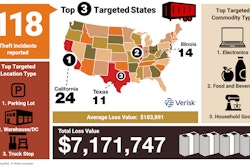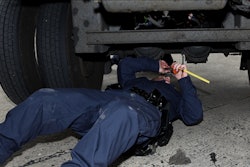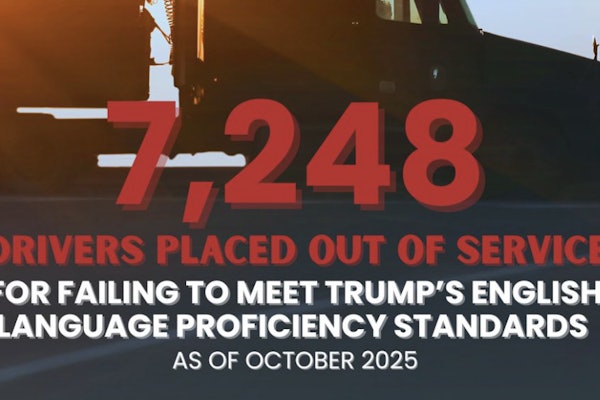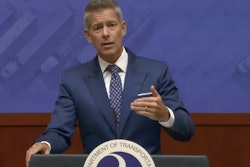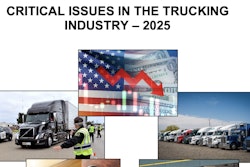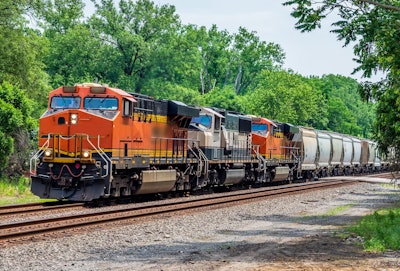
Numerous trucking organizations were among some 400 business associations and groups that Monday, Nov. 28, sent a letter to congressional leaders asking Congress to intervene in talks to settle contract talks between the nation's freight railroads and their unions. The letter warned of dire economic consequences if a settlement is not reached by Dec. 9, and today organizations representing truck stops and fuel marketers warned a strike would have implications for the nation's fuel supply.
Also on Monday President Joe Biden asked Congress to intervene and block a railroad strike before next month’s deadline in the stalled contract talks. House Speaker Nancy Pelosi said lawmakers would take up legislation this week to impose the deal that unions agreed to in September.
“Let me be clear: a rail shutdown would devastate our economy,” Biden said in a statement. “Without freight rail, many U.S. industries would shut down.”
The letter from business organizations in part said:
"We write you today on a matter of grave urgency. Once again, the United States is facing the threat of a major rail strike between the major freight railroads and 12 labor unions, the second such time in less than three months. A stoppage of rail service for any duration would be extremely damaging to American families and our economy, costing $2 billion dollars per day. As provided for under federal law and consistent with past practice, Congress must be prepared to intervene before the end of the current “status quo” period on December 9 to ensure continued rail service should railroads and four unions fail to reach a voluntary agreement. A strike by any one union would assuredly result in a stoppage of national rail service."
RELATED NEWS: Specter of rail strike looms as major union votes down proposed pact
The letter adds:
"Many businesses will see the impacts of a national rail strike well before December 9 – through service disruptions and other impacts potentially as early as December 5. The sooner this labor impasse ends, the better for our communities and our national economy."
Finally, the letter closes with this appeal:
"While a voluntary agreement with the four holdout unions is the best outcome, the risks to America’s economy and communities simply make a national rail strike unacceptable. Therefore, absent a voluntary agreement, we call on you to take immediate steps to prevent a national rail strike and the certain economic destruction that would follow."
Signing the letter were organizations as diverse as the American Bridal and Prom Industry Association and the Tag and Label Manufacturers Institute. Trucking organizations signing the letter included:
- American Trucking Associations
- Arizona Trucking Association
- California Trucking Association
- Colorado Motor Carriers Association
- Florida Trucking Association
- Georgia Motor Trucking Association
- Harbor Trucking Association
- Idaho Trucking Association
- Indiana Motor Truck Association
- Iowa Motor Truck Association
- Kansas Motor Carriers Association
- Kentucky Trucking Association
- Maryland Motor Truck Association
- Michigan Trucking Association
- Montana Trucking Association
- Nebraska Trucking Association
- Nevada Trucking Association
- New Jersey Motor Truck Association
- North Dakota Motor Carriers Association
- Ohio Trucking Association
- Oregon Trucking Association
- Pennsylvania Motor Truck Association
- Rhode Island Trucking Association, Inc.
- SC Trucking Association
- South Carolina Trucking Association
- Tennessee Trucking Association
- Texas Trucking Association
- Trucking Association of Massachusetts
- Trucking Association of New York
- Washington Trucking Associations
- Wisconsin Motor Carriers Association
A statement from NATSO, which represents truck stops and travel centers, and SIGMA, which represents fuel marketers issued this statement about the possible rail strike:
""We encourage the Administration and Congress to take aggressive action to resolve the ongoing labor dispute within the rail industry. If a work stoppage were to occur, it would immediately disrupt fuel marketers' ability to ensure a reliable and stable supply of fuel for U.S. consumers and for the nation's commercial fleets. The U.S. economy in many ways revolves around transportation fuel, and if the necessary components to that fuel cannot get to where they are needed, the market impact will be drastic. The economic consequences will be catastrophic.
"A prolonged railroad shutdown will constrain the nation's fuel supply by disrupting the availability of ethanol, which is often an essential component of gasoline, and diesel exhaust fluid, which most heavy-duty trucks need to run.
"Amid tight fuel supplies and low inventories, idled rail cars stand to introduce a massive disruption in the availability of these additives exposing the fuel market to a marked decrease in supply from which it would not be able to quickly adjust."





